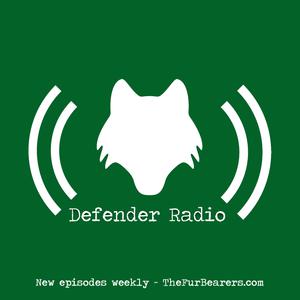
Defender Radio: The Podcast for Wildlife Advocates and Animal Lovers
The Fur-Bearers
Stay informed, stay strong
- 33 minutes 53 secondsRescuing Rabbits with Amy's Bunny Barn
We’re releasing this episode in time for International Rabbit Day – a celebration of our favourite floppy-eared lagomorphs. While rabbits do make wonderful companions, they are frequently released or dumped in the wild – and with an exceptionally quick gestation period, that can lead to a lot of domestic rabbits in the wild, really fast.
Fortunately, there are incredible people who are working to find homes for rabbits and prevent the need for dumping – like Amy McLaughin of Amy’s Bunny Barn on Vancouver Island.
A vet assistant, past SPCA worker, and passionate advocate for rabbits, Amy is providing essential education, foster care, and resources to help keep bunnies in homes with full, happy lives. To share more about what goes into caring for a pet rabbit, why dumping is such an issue, and the importance of meeting the many needs of bunnies in homes, Amy joins Defender Radio.
SHOW NOTES
The rabbit shown in the episode artwork is named Bella, and is one of many bunnies available for adoption! Visit https://www.amysbunnybarn.org/adoptables to see more.
Amy's Bunny Barn online: https://www.amysbunnybarn.org/ Support Amy's Bunny Barn with a tax deductible donation: https://www.amysbunnybarn.org/donate
Amy's Bunny Barn on Facebook: https://www.facebook.com/amysbunnybarn/ Amy's Bunny Barn on Instagram: https://www.instagram.com/amysbunnybarn/ Amy's Bunny Barn on Pinterest: https://ca.pinterest.com/amysbunnybarn/ Amy's Bunny Barn on YouTube: https://www.youtube.com/@amybunnybarn
Want to suggest topics for Defender Radio? Reach out to us at [email protected], by visiting DefenderRadio.com or engaging host Michael Howie on social media via Instagram (www.instagram.com/howiemichael) or Facebook (www.Facebook.com/DefenderRadio).
Defender Radio is produced by The Fur-Bearers (www.TheFurBearers.com), a charitable non-partisan organization whose mandate is to advocate on behalf of fur-bearing animals in the wild and in confinement, promote coexistence solutions in communities and protect the habitats of fur-bearing animals across Canada. You can follow The Fur-Bearers on Instagram (www.instagram.com/furbearers), Twitter (www.twitter.com/furbearers) and Facebook (www.facebook.com/FurFree).
27 September 2024, 3:53 pm - 10 minutes 34 secondsSpeak at Humane Canada’s Summit for Animals with Natalia Hanson
Finding community is an important part of being an advocate – and in a post pandemic world, that can be a struggle. Fortunately, opportunities like Humane Canada’s Summit for Animals bring together hundreds of likeminded people, sharing resources, ideas, and finding hope together.
The 2025 Summit for Animals is taking place in Montreal, Quebec on April 27, 28 and 29 – and there’s still time to submit a proposal to present yourself! To learn more about the Summit, the range of subjects that will be presented upon, and what kind of proposal is perfect, Humane Canada’s Natalia Hanson joins Defender Radio.
SHOW NOTES
Episode art photo by RT-Images / Getty Images
Humane Canada's website: https://humanecanada.ca/ Humane Canada's Summit for Animals website: https://reg.eventmobi.com/summitforanimals
Humane Canada on Facebook: https://www.facebook.com/HumaneCanada/ Humane Canada on Instagram: https://www.instagram.com/humanecanada/?hl=en Humane Canada on LinkedIn: https://www.linkedin.com/company/humanecanada/ Humane Canada on X: https://x.com/HumaneCanada
Want to suggest topics for Defender Radio? Reach out to us at [email protected], by visiting DefenderRadio.com or engaging host Michael Howie on social media via Instagram (www.instagram.com/howiemichael) or Facebook (www.Facebook.com/DefenderRadio).
Defender Radio is produced by The Fur-Bearers (www.TheFurBearers.com), a charitable non-partisan organization whose mandate is to advocate on behalf of fur-bearing animals in the wild and in confinement, promote coexistence solutions in communities and protect the habitats of fur-bearing animals across Canada. You can follow The Fur-Bearers on Instagram (www.instagram.com/furbearers), Twitter (www.twitter.com/furbearers) and Facebook (www.facebook.com/FurFree).
16 September 2024, 9:00 am - 37 minutes 19 secondsThe Ursa Project with Katie Graves
Hundreds of black bears are killed in British Columbia every year; often, the issue leading to government agents killing bears is attractants such as unsecure garbage that bears may want to explore or eat. While there is much to be said and debated about this situation, one thing is clear: communities need solutions. And that’s where the Ursa Project comes in.
Founded in Nelson, BC, in 2022, the Ursa Project was created by concerned citizens who wanted to see the bears of their community protected, not killed simply for looking for food. To date, the non-profit has made inroads in getting new waste management tools, increasing education, and providing an important voice to represent the needs of bears in local decision-making. To share more about the origins, work, and goals of the Ursa Project, Defender Radio is joined by founding member Katie Graves.
SHOW NOTES
Ursa Project's website: https://www.theursaproject.ca/ Ursa Project on Facebook: https://www.facebook.com/groups/789619325665220/ Ursa Project on Instagram: https://www.instagram.com/ursaprojectnelson/
FREE coexistence door hangers: https://thefurbearers.com/resources The Fur-Bearers' Attractants page: https://thefurbearers.com/attractants The Fur-Bearers' BC Black Bears page: https://www.thefurbearers.com/bcblackbears
Want to suggest topics for Defender Radio? Reach out to us at [email protected], by visiting DefenderRadio.com or engaging host Michael Howie on social media via Instagram (www.instagram.com/howiemichael) or Facebook (www.Facebook.com/DefenderRadio).
Defender Radio is produced by The Fur-Bearers (www.TheFurBearers.com), a charitable non-partisan organization whose mandate is to advocate on behalf of fur-bearing animals in the wild and in confinement, promote coexistence solutions in communities and protect the habitats of fur-bearing animals across Canada. You can follow The Fur-Bearers on Instagram (www.instagram.com/furbearers), Twitter (www.twitter.com/furbearers) and Facebook (www.facebook.com/FurFree).
12 August 2024, 9:00 am - 31 minutes 8 secondsSigns of Life with Sarah Cox
More than 5,000 wild species are at risk of extinction in Canada right now – it’s an overwhelming, staggering number, and it begs the question: what are we doing about it?
Environmental journalist Sarah Cox explores this question with hope and curiosity in her new book, Signs of Life: Field Notes from the Frontlines of Extinction. Featuring interviews and experiences with advocates, researchers, Indigenous peoples, and even the Canadian military, Sarah explores several species at risk of extinction in Signs of Life, and what’s being done by different people to make an impact.
Signs of Life is a must read for wildlife and environmental advocates in Canada, or anyone interested in how we can make an impact on climate change. Sarah joins Defender Radio to share more about what motivated her to write Signs of Life, how she manages the difficult narratives she shares, and how people of all walks of life can make a difference for the future.
SHOW NOTES:
Episode art photo by Frank Fichtmüller / Getty Images
Sarah Cox's website: https://www.SarahCox.ca
Signs of Life from Goose Lane Publishing: https://gooselane.com/collections/nature/products/signs-of-life
Want to suggest topics for Defender Radio? Reach out to us at [email protected], by visiting DefenderRadio.com or engaging host Michael Howie on social media via Instagram (www.instagram.com/howiemichael) or Facebook (www.Facebook.com/DefenderRadio).
Defender Radio is produced by The Fur-Bearers (www.TheFurBearers.com), a charitable non-partisan organization whose mandate is to advocate on behalf of fur-bearing animals in the wild and in confinement, promote coexistence solutions in communities and protect the habitats of fur-bearing animals across Canada. You can follow The Fur-Bearers on Instagram (www.instagram.com/furbearers), Twitter (www.twitter.com/furbearers) and Facebook (www.facebook.com/FurFree).
22 July 2024, 9:00 am - 36 minutes 40 secondsTales of the Urban Wild with Dr. Tiffany Yap and Meital Smith
What’s the world like for a Puma in California? What would they encounter, and what would they make of the humans acting strangely in the landscape? Scientist Dr. Tiffany Yap and artist Meital Smith put together what they think that may look like in the incredible Tales of the Urban Wild: A Puma’s Journey, now available from Reverberation Books.
Dr. Yap, a conservation scientist, wrote the story of the puma named C-8 by local scientists who explores the world around him; Meital Smith, a multidisciplinary artist, developed the incredible artwork that pulls together the graphic novel into a poignant, evocative read. To share more about the motivation behind the story, the artwork, and why the narrative of a young puma navigating the world is more important today than ever before, Dr. Tiffany Yap and Meital Smith join Defender Radio.
SHOW NOTES:
Buy Tales of the Urban Wild: A Puma's Journey at https://www.amazon.ca/Tales-Urban-Wild-Pumas-Journey/dp/1634050584
Learn more about Meital Smith: https://www.meitalsmith.com/
Learn more about Dr. Tiffany Yap: https://tiffanyyap.com/
Episode art by Meital Smith
Want to suggest topics for Defender Radio? Reach out to us at [email protected], by visiting DefenderRadio.com or engaging host Michael Howie on social media via Instagram (www.instagram.com/howiemichael) or Facebook (www.Facebook.com/DefenderRadio).
Defender Radio is produced by The Fur-Bearers (www.TheFurBearers.com), a charitable non-partisan organization whose mandate is to advocate on behalf of fur-bearing animals in the wild and in confinement, promote coexistence solutions in communities and protect the habitats of fur-bearing animals across Canada. You can follow The Fur-Bearers on Instagram (www.instagram.com/furbearers), Twitter (www.twitter.com/furbearers) and Facebook (www.facebook.com/FurFree).
8 July 2024, 9:00 am - 1 hour 3 minutesBears in our Backyards with Paul Johnson
Black bears in British Columbia face an impossible reality: find new places to live, without being near people, while we continue to remove habitat and ecological connectivity from the landscape. It’s a struggle that journalist and documentarian Paul Johnson wanted to profile – in hopes of making a change.
Bears in our Backyards: The Struggle to Survive with Humans, is Johnson’s latest full-length documentary, and features extensive footage of black bears in British Columbia, along with interviews from experts, advocates, and government officials. The documentary is poignant, and shows the precarious situation we’ve created for black bears – and how our attitudes toward wildlife coexistence can set us all up for success, or failure.
Paul joins Defender Radio to share more about what motivated him to create the documentary, how his time as a television journalist with Global BC shapes his views of the issue, and what we can all do to create the future for ourselves and black bears that we want to see.
SHOW NOTES:
View Bears In Our Backyards: The Struggle to Survive With Humans (trailer and rent/buy options): https://vimeo.com/ondemand/466402
Connect with Paul on X/Twitter: https://x.com/PJReporter/
The episode art image is a still from Bears in our Backyards, provided by Paul Johnson.
Want to suggest topics for Defender Radio? Reach out to us at [email protected], by visiting DefenderRadio.com or engaging host Michael Howie on social media via Instagram (www.instagram.com/howiemichael) or Facebook (www.Facebook.com/DefenderRadio).
Defender Radio is produced by The Fur-Bearers (www.TheFurBearers.com), a charitable non-partisan organization whose mandate is to advocate on behalf of fur-bearing animals in the wild and in confinement, promote coexistence solutions in communities and protect the habitats of fur-bearing animals across Canada. You can follow The Fur-Bearers on Instagram (www.instagram.com/furbearers), Twitter (www.twitter.com/furbearers) and Facebook (www.facebook.com/FurFree).
1 July 2024, 9:00 am - 26 minutes 20 secondsNakoda's Story with John E. Marriott
Nakoda was a grizzly bear who lived in Yoho National Park. She was a well-known bear, having been tracked by Parks Canada as Bear 178, and popular with photographers and tourists who caught a glimpse of her famous blonde-white fur. Tragically, on the evening of June 6, 2024, Nakoda was struck by a vehicle on the Trans-Canada highway near the park, and was later found dead. This came only 12 hours after Nakoda’s two cubs were also struck and killed on the highway.
Nakoda isn’t the first grizzly to die due to the railways and highways that flow through and around national park sites; but John Marriott and the team at Exposed Wildlife Conservancy hope she may be the last.
John, the cofounder of Exposed Wildlife Conservancy and an award-winning wildlife photographer, joins Defender Radio to share the tragic story of Nakoda and her family, what is leading to the deaths of grizzlies in the area, and how wildlife lovers can take action to protect more grizzly bears.
SHOW NOTES:
Take Action with Exposed Wildlife Conservancy: https://win.newmode.net/exposedwildlifeconservancy/nakodasletter
Connect with Exposed Wildlife Conservancy: https://www.exposedwc.org
Exposed Wildlife Conservancy on Facebook (https://www.facebook.com/exposdwc/) Instagram (https://www.instagram.com/exposdwc/) and YouTube (https://www.youtube.com/@EXPOSEDWildlifeConservancy)
Support Exposed Wildlife Conservancy: https://www.exposedwildlifeconservancy.org/one-time-donation
Episode art photo of Nakoda by Exposed Wildlife Conservancy Ambassador Lee Horbachewski
Want to suggest topics for Defender Radio? Reach out to us at [email protected], by visiting DefenderRadio.com or engaging host Michael Howie on social media via Instagram (www.instagram.com/howiemichael) or Facebook (www.Facebook.com/DefenderRadio).
Defender Radio is produced by The Fur-Bearers (www.TheFurBearers.com), a charitable non-partisan organization whose mandate is to advocate on behalf of fur-bearing animals in the wild and in confinement, promote coexistence solutions in communities and protect the habitats of fur-bearing animals across Canada. You can follow The Fur-Bearers on Instagram (www.instagram.com/furbearers), Twitter (www.twitter.com/furbearers) and Facebook (www.facebook.com/FurFree).
24 June 2024, 9:00 am - 47 minutes 42 secondsBeyond Animal Control with Jennifer Toussaint
Mustachioed dog-nappers chasing animated pooches around the city may be what’s in some of our heads when it comes to animal control, but the important front-line officers in our communities go well beyond that trope.
In Arlington, Virginia, the community knows they can rely on the Animal Welfare League of Arlington to help, whether it’s support for expensive veterinary procedures, getting an injured raccoon into care, or working with citizens to ensure that everyone’s dignity and welfare are considered. Chief of Animal Control and Senior Director of Community Resources Jennifer Toussaint joins Defender Radio to discuss how considering an intersectional approach to animal welfare makes an impact, the importance of crisis intervention training, and why finding moments to celebrate matters.
SHOW NOTES:
Visit the Animal Welfare League of Arlington's website: https://www.awla.org/
Find AWLA on Instagram (https://www.instagram.com/awlaarlington/), Facebook (https://www.facebook.com/AWLArlington/), and X/Twitter (https://x.com/AWLAArlington).
The Office Clip (Dwight and the bat): https://www.youtube.com/watch?v=B6i4rubASKs
Parks and Rec (Andy catches the opposum): https://www.youtube.com/watch?v=M0-c3bF-bdc
Want to suggest topics for Defender Radio? Reach out to us at [email protected], by visiting DefenderRadio.com or engaging host Michael Howie on social media via Instagram (www.instagram.com/howiemichael) or Facebook (www.Facebook.com/DefenderRadio).
Defender Radio is produced by The Fur-Bearers (www.TheFurBearers.com), a charitable non-partisan organization whose mandate is to advocate on behalf of fur-bearing animals in the wild and in confinement, promote coexistence solutions in communities and protect the habitats of fur-bearing animals across Canada. You can follow The Fur-Bearers on Instagram (www.instagram.com/furbearers), Twitter (www.twitter.com/furbearers) and Facebook (www.facebook.com/FurFree).
10 June 2024, 9:00 am - 44 minutes 10 secondsCalifornia's Room to Roam Act with Dr. Tiffany Yap
Room to roam for wildlife is essential to their health, particularly as they face increasing pressures related to development and the climate crisis. But many communities aren’t planned with wildlife in mind – or ecological connectivity between neighbourhoods and boundaries. The California state assembly has passed the Room to Roam Act, which compels local governments to work with each other and state agencies to ensure resilient, sustainable ecosystems are connected to protect wildlife, the environment, and human health.
To share more about this exciting legislation, the impact it may have, and why connectivity is an essential tool for climate adaptation, Dr. Tiffany Yap, Senior Scientist at the Center for Biological Diversity.
SHOW NOTES:
Episode photo of a bobcat using an underpass by National Park Service
Read the Room To Roam Act: https://leginfo.legislature.ca.gov/faces/billNavClient.xhtml?bill_id=202320240AB1889
Read Center for Biological Diversity's News Release: https://biologicaldiversity.org/w/news/california-assembly-passes-first-of-its-kind-bill-to-improve-wildlife-connectivity-2024-05-20/
Support the Center for Biological Diversity: https://biologicaldiversity.org/support/
Report - California Connections: https://www.biologicaldiversity.org/campaigns/wildlife-connectivity/pdfs/California-Connections-wildlife-connectivity-report.pdf
Dr. Tiffany Yap: https://tiffanyyap.com/
Want to suggest topics for Defender Radio? Reach out to us at [email protected], by visiting DefenderRadio.com or engaging host Michael Howie on social media via Instagram (www.instagram.com/howiemichael) or Facebook (www.Facebook.com/DefenderRadio).
Defender Radio is produced by The Fur-Bearers (www.TheFurBearers.com), a charitable non-partisan organization whose mandate is to advocate on behalf of fur-bearing animals in the wild and in confinement, promote coexistence solutions in communities and protect the habitats of fur-bearing animals across Canada. You can follow The Fur-Bearers on Instagram (www.instagram.com/furbearers), Twitter (www.twitter.com/furbearers) and Facebook (www.facebook.com/FurFree).
3 June 2024, 9:00 am - 41 minutes 10 secondsPerceptions of Urban Coyotes in Ontario with Nicole Murphy + Dr. Stephanie Rutherford
Traditional media has long portrayed coyotes in a negative light – and you don’t have to take my word for it. Nicole Murphy, a student at Peterborough’s Trent University took on the issue of how coyotes are perceived by undertaking a three-part project: she ran an analysis of media reporting on coyotes across the Greater Toronto Area, surveyed staff, faculty and students at Trent University to get their perceptions, and setup trail cameras around the campus to learn and showcase how coyotes are already coexisting with people.
The paper, titled Perceptions of Urban Coyotes in Ontario: The role of media as a barrier to tolerance and possibilities for coexistence, is an outstanding look at how traditional media continues to paint coyotes in a negative light – and how, surprisingly, that impact may be shifting. It also provides insights into how advocates and educators can help people understand who coyotes are, the roles they play in ecosystems, and steps we can all take toward coexistence.
To share more about the paper, the results, and what it all means is Nicole Murphy, with Dr. Stephanie Rutherford of Trent University.
SHOW NOTES:
Coyotes of Trent (Nicole's Thesis website): https://www.coyotesoftrent.com/coyote
Trent University News: Why Are People Afraid of Coyotes? Trent Student Research Explores Our Perceptions of the Often-Feared Animal
Find Nicole Murphy on LinkedIn: https://www.linkedin.com/in/nicolemurphy003/
Learn more about Dr. Stephanie Rutherford: https://www.stephanierutherfordphd.com/
Trent University School of the Environment: https://www.trentu.ca/environment/
Trent University's Bachelor of Environmental Science / Studies: https://www.trentu.ca/bess/
Cover photo provided by Nicole Murphy
Want to suggest topics for Defender Radio? Reach out to us at [email protected], by visiting DefenderRadio.com or engaging host Michael Howie on social media via Instagram (www.instagram.com/howiemichael) or Facebook (www.Facebook.com/DefenderRadio).
Defender Radio is produced by The Fur-Bearers (www.TheFurBearers.com), a charitable non-partisan organization whose mandate is to advocate on behalf of fur-bearing animals in the wild and in confinement, promote coexistence solutions in communities and protect the habitats of fur-bearing animals across Canada. You can follow The Fur-Bearers on Instagram (www.instagram.com/furbearers), Twitter (www.twitter.com/furbearers) and Facebook (www.facebook.com/FurFree).
27 May 2024, 9:00 am - 1 hour 15 secondsClimate Grief with Dr. Shawna Weaver
Some days are hard. The world feels like it’s falling apart, forests are burning, ecosystems are breaking down, and hope can be a long, long way away. But you’re not alone in this feeling – and there are ways to manage and cope that not only support you but can make for a healthier community and planet.
Climate Grief, From Coping to Resilience and Action is a new book from Dr. Shawna Weaver that dives into the realities of climate change, the grief so many of us are experiencing, and how that impacts our day-to-day lives. Importantly, Dr. Weaver shows how facing our grief is the first step toward making change for ourselves and for the planet. An experienced eco-therapist with advanced degrees, Dr. Weaver joins Defender Radio to share what led to this book, how grief is unique to everyone, and what tools we have to ensure we not only cope but become resilient and lead fulfilling lives.
SHOW NOTES:
Cover photo by Peter Kolejak / Getty Images
Dr. Shawna Weaver's website: https://www.shawnajweaver.com/
Climate Grief on Amazon (https://www.amazon.com/Climate-Grief-Coping-Resilience-Action/dp/1590567161/ref=sr_1_1?crid=3DCSKZH51R3K8&keywords=climate%20grief%20weaver&qid=1687959054&s=books&sprefix=climate%20grief%20weaver%2Cstripbooks%2C78&sr=1-1), Bookshop (https://bookshop.org/p/books/climate-grief-from-coping-to-resilience-and-action-shawna-weaver/19810317?ean=9781590567166), Indigo (https://www.indigo.ca/en-ca/climate-grief-from-coping-to-resilience-and-action/9781590567166.html)
Follow Dr. Shawna Weaver on Instagram (https://www.instagram.com/drshawnajweaver/) and Twitter (https://twitter.com/shawnajweaver?lang=en).
Mental Health Resources
Talk Suicide Canada: https://talksuicide.ca/ 1-833-456-4566 (toll free, 24/7) Text 45645 (4 pm to midnight ET)
Government of Canada resource list: https://www.canada.ca/en/public-health/services/mental-health-services/mental-health-get-help.html
Wellness Together Canada: https://www.wellnesstogether.ca/en-ca/
Canadian Mental Health Association: https://cmha.ca/find-help/
In case of emergency, call 9-1-1.
For American listeners:
American Foundation for Suicide Prevention https://afsp.org/ Crisis interventions https://afsp.org/im-having-thoughts-of-suicide/
13 May 2024, 3:26 pm - More Episodes? Get the App
Your feedback is valuable to us. Should you encounter any bugs, glitches, lack of functionality or other problems, please email us on [email protected] or join Moon.FM Telegram Group where you can talk directly to the dev team who are happy to answer any queries.
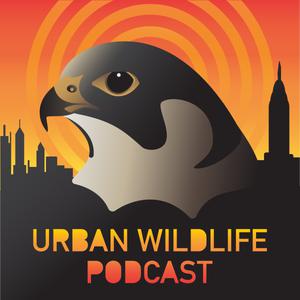 Urban Wildlife Podcast
Urban Wildlife Podcast
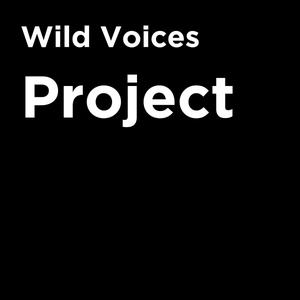 Wild Voices Project
Wild Voices Project
 National Wildlife Federation Outdoors
National Wildlife Federation Outdoors
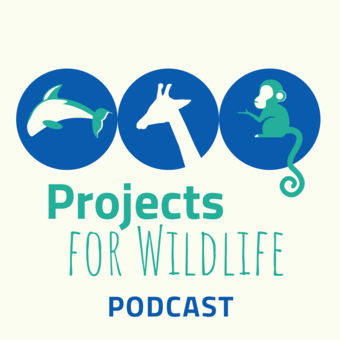 Projects for Wildlife Podcast
Projects for Wildlife Podcast
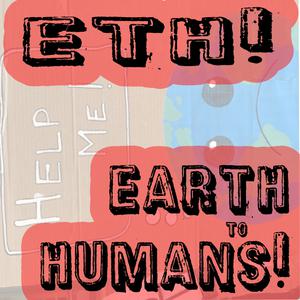 Earth to Humans!
Earth to Humans!
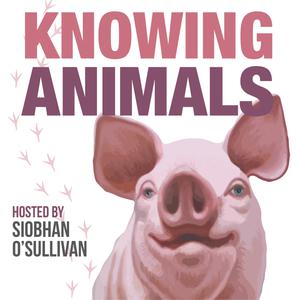 Knowing Animals
Knowing Animals